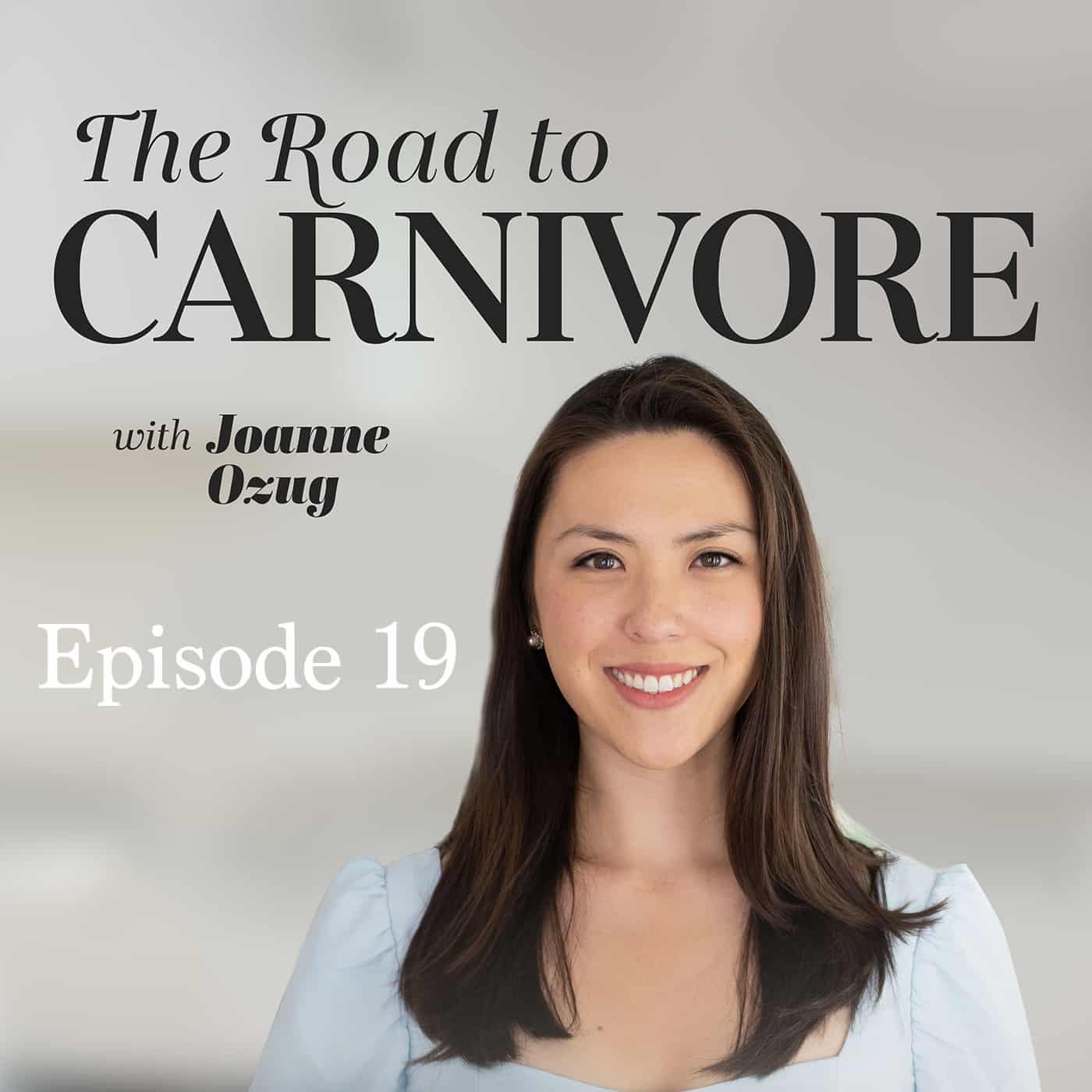Welcome to Episode 19 of The Road to Carnivore Podcast!
Have you ever heard someone say that meat causes cancer? This 17-minute episode will help you understand this widely held but unfounded claim, and where it came from.
There is literally not a single study on earth that proves a link between meat consumption and an increased risk of cancer.
Show Links and Resources:
Carcinogenicity of consumption of red and processed meat
Unprocessed Red Meat and Processed Meat Consumption: Dietary Guideline Recommendations From the Nutritional Recommendations (NutriRECS) Consortium
Cancer incidence in vegetarians: results from the European Prospective Investigation into Cancer and Nutrition (EPIC-Oxford)
Study: Red and processed meats don’t raise risk for death, recurrence in colon cancer
Meat intake and cause-specific mortality: a pooled analysis of Asian prospective cohort studies
American Cancer Society: Lifetime Risk of Developing or Dying From Cancer
WHO report says eating processed meat is carcinogenic: Understanding the findings
Low-Fat Dietary Pattern and Risk of Cardiovascular Disease: The Women’s Health Initiative Randomized Controlled Dietary Modification Trial
Dietary risk factors for colon cancer in a low-risk population
CDC: What Are the Risk Factors for Lung Cancer?
Peak Human Podcast Episode 24 with Dr. David Klurfeld
Why is the World Health Organisation Anti-Meat? Another great and simple to understand overview of the 2015 IARC report, by Tim Rees
Food sources of nitrates and nitrites
Nitrates/Nitrites in Food—Risk for Nitrosative Stress and Benefits
American Meat Science Association: Cured Meat Flavor and the Role of Nitrite in its Development
Evaluation of nitrate and nitrite contents in pickled fruit and vegetable products
IFT: Are Nitrates and Nitrites Misunderstood?
Nitrates in Processed Meats: What’s the Risk?
Red and processed meat and pancreatic cancer risk: a meta-analysis


Terrific series. It’s factual and interesting. Very well done.
Thank you again! I look forward to creating more episodes 🙂
Excellent podcast! I wasn’t quite aware of the sheer unreliability of all these studies – but have always been skeptical as I’ve known that studies can easily be skewed to fit one’s agenda. I’ve been eating meat all my life, and strongly believe it has positively contributed to my health. There was an episode where I restricted my red meat consumption somewhat, and instead ate more grains and legumes – boy, my health certainly deteriorated! Gained weight, worse teeth health, etc. The experience showed me how the propagated ways of eating are certainly not the best (especially with regard to all the anti-nutrients in grains and legumes)!
Concerning the nitrates in processed meats, I have been cautious, though. From what I understand, it is when exposed to high heat (such as in frying or grilling), and also in combination with some other proteins, such as casein in cheese, that nitrosamines are most likely to be formed. So I would assume that such food products, like hot dogs, or cured ham on pizza, etc., might potentially pose some risks when eaten regularly and in larger amounts, because they have been exposed to high temperatures during the food preparation.
Will definitely listen to more of your podcast episodes, thanks again! 🙂
Thanks for your thoughtful comment. That’s interesting about the heat component. I will look into that more.
Found your podcast from your talk with MyZeroCarbLife – I was impressed.
After having listened to all 19 podcasts, I’m even more impressed by your concise clear presentation of the episodes, and the hyperlinks to the source material.
Thank you for doing this. I will re-listen to them, and share them with some friends who are thinking about going toward carnivore.
Hi Jay, I’m glad you’ve enjoyed the episodes! Thanks for your comment.
Your series has changed my life and opened my eyes.
I listen to it on repeat, the entire series, to help keep me strong on my journey. It’s like I have a friend right there with me cheering me on.
I’m curious…you talked about creating an episode on cholesterol but I didn’t see one…will you be writing new episodes in the future?
That’s wonderful it has had a positive impact in your life. Are you signed up for my email newsletter? I shared that I will be returning after things have settled with my new baby. My email list is the best place for getting updates.
This is a wonderful series of podcasts. You have presented an amazing amount of information in a very accessible manner.
A small point in this episode concerning life expectancy in the past:
Childhood mortality greatly affects life expectancy, which was low in the mid-1800s substantially because mortality rates were very high for this age group. For example, roughly one child in five born alive in 1850 did not survive to age one, but today the infant mortality rate is under one percent. The past century and a half witnessed a significant shift in deaths from early childhood to old age.
Until the beginning of the twentieth century, infectious diseases were by far the most important causes of mortality; they took their greatest toll among infants and children. Indeed, if individuals managed to survive to the age of twenty, they could for the most part look forward to an additional forty years or more of life. High rates of infant and child mortality (as well as fertility) meant that the number of aged persons in the population would be correspondingly small.
While life expectancy at birth was 38 in England from 1750-99, what this really reflected was high child mortality. Infant mortality was 17% and only 69% of newborns made it to 15. But those that did make it to 15 could expect to live another 37 years. If you made it through childhood you would likely make it into your 50s, and many lived much longer as 15% of the English men making wills in the 17th century died at age 70 or above.
Hi Joe, thank you very much. And, I enjoyed reading the information you’ve shared with me. There’s always so much to learn, especially when we look backwards.